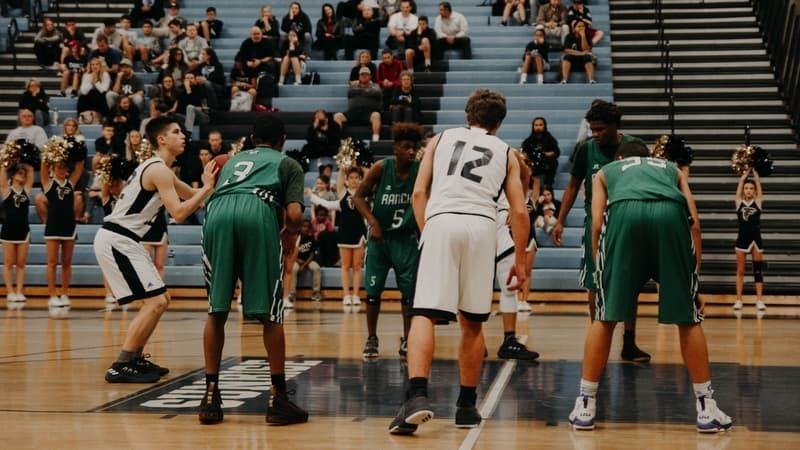Top Colleges Which Superscore the SAT & ACT — With Tips for Your Own Score Reporting Strategy
Read now/f/64062/1200x676/207c5254d4/benefits-of-ivy-league-header.jpg)
/f/64062/1988x1326/87f5e1a8a0/why-extracurricular-activities-matter-in-college-admissions.jpeg)
The decades-old college admissions advice to be “well-rounded” no longer applies. Striving to be well-rounded takes a toll on students’ mental health and doesn’t accurately reflect the demands of today’s job market. Now, top university admissions officers are looking for “well-lopsided” students — also known as angular, spiky, pointy, and T-shaped. Read on to find out what that means and how to achieve it.
For many, the term “well-rounded student” brings up a cartoon-like mental image: An energetic valedictorian who has made it to the Olympic trials, founded a nonprofit, filed a patent, created an app, and painted the ceiling of the Sistine Chapel — all before the age of 17.
It’s true that today’s college admissions landscape is fiercely competitive. Acceptance rates continue to decline. Students feel they must excel in every possible area to secure a spot at an Ivy League or top university.
However, being well-rounded is not the golden ticket to college acceptance.
In this article, we will:
For decades, teachers and college counselors advised students to be well-rounded. This meant being proficient in a wide range of disciplines; being a generalist. Over time, this snowballed into the idea that students must excel in every aspect of their lives: academics, sports, arts, and community service. Not only is this unfeasible — it’s also not even what colleges want.
The pressure to be well-rounded can affect students' mental health, leading to anxiety and a sense of inadequacy. It can also prevent students from exploring their true passions and developing their unique talents.
An emphasis on well-roundedness also has consequences for the real world. In today's rapidly evolving job market, employers value specialized skills. Companies seek candidates with expertise in specific areas.
By focusing on their passions and developing specialized skills, students don’t only boost their college applications. They also set themselves up for future career success.


This is the key distinction: colleges aren’t looking for well-rounded students. They want to build a well-rounded class. They desire a group of “pointy” specialists who create a balanced student body when they come together. They want edge.
A campus full of well-rounded generalists is simply boring. Generalists don’t discover a new star system or start the next game-changing tech company. They’re successful, but they’re not the best at any activity or academic discipline.
This is why Ivy League schools and top colleges aren’t looking for applicants who are good at everything. They value depth of passion and commitment over a laundry list of extracurricular activities. Admissions officers are seeking students who have pursued their interests with intensity, dedication, and a genuine love for their chosen areas of focus.
Instead of trying to be good at everything, we at Crimson recommend students focus on developing depth in their areas of interest. There are many words for this alternative to well-roundedness: angular, spike, well-lopsided, and T-shaped.
The “T-shaped skill set” is a metaphor for a person’s strengths, first described by CEO Tim Brown. (1)
Think of the two lines that make up the letter T: a horizontal and a vertical. The horizontal line represents the ability to collaborate across disciplines and express empathy. The vertical represents depth of knowledge in one particular area.
In the context of extracurriculars and academics, this is a student who:
This student has a combination of intelligence, creativity, empathy, and initiative. They also show authentic interest in an area special to their personality.
By dedicating themselves to a particular passion or skill, “well-lopsided” students demonstrate their commitment and ability to excel in a specific field. They also stand out from the crowd.
Colleges value students who showcase their individual strengths and passions. Rather than participating in activities just to impress admissions officers, pursue activities that genuinely interest you. Authenticity shines through in your application. It helps you present a compelling narrative that highlights your uniqueness.
Being well-lopsided does NOT mean throwing a bunch of extracurriculars on your application, mentioning leadership a few times, and calling it a day. Admissions officers can tell when students are padding their applications with extracurriculars just to get in. It’s better to pick 2-3 quality activities than to sign up for every club and sport on campus.
Admissions officers want a sense of your own special personal narrative. They don’t want you to brag. They want you to demonstrate why your passions are important to you, and how you use them to make a difference. A good adviser can show you how to do this in the most effective way.
Your chosen activities should all have a cohesive theme that exemplifies you. Your story is unique, and you need to tell it. Below are some examples of extracurricular activities that tie in with a theme.
Activities:
Activities:
Admissions officers want to see that you are in touch with your community and are aiming to improve the community in an inclusive way.
Struggling to decide on an extracurricular blend that will get you noticed by admissions officers? Choose a mix from the three safest extracurricular categories: career, community, and personal activities.
Career activities are related to what you hope to study in college. They show admissions officers that you are extremely excited about studying your intended major.
Examples include:
Through these activities, you show that your interest in your field isn’t just about the money or prestige. You’re pursuing it because without that degree, you couldn’t be you.
Community activities show that you give up your time to help the community or people in need. They also show that you proactively care and want to make changes in the world.
A community activity should be something that is important to you. Keep in mind: to be an effective extracurricular for your college application, you should commit enough time to be able to make an impact — at least 12 months or more.
Examples:


Personal activities convey your personality and show admissions officers what makes you tick. They can be tied to your career or community activity. For example, you want to study medicine, so you volunteer at a hospital (personal + community) and at the research lab (personal + career).
Or, your personal activity can be completely different from your other activities to give a better picture of you as a whole. When it doesn’t necessarily align with your other pursuits, it has an element of surprise.
Examples:
A personal activity reflects your excitement for life. It shows there’s more to you than just study — and you’re motivated by more than just your future career or field.
Consider this your official permission to let go of the well-roundedness myth. It places immense pressure on you to spread yourself thin without truly excelling at anything. It also doesn’t serve you well in today’s job market.
Instead, focus on pursuing your passions wholeheartedly. Showcase their unique strengths and talents through 2-3 strategically chosen extracurriculars. You’ll stand out from the thousands of other applicants and boost your chances at getting into a top university!
Enter your SAT or ACT score to discover some schools for you!